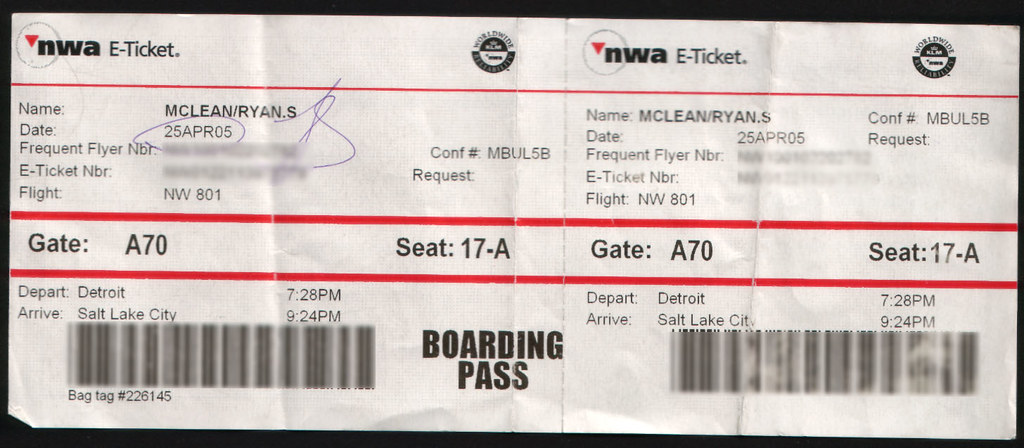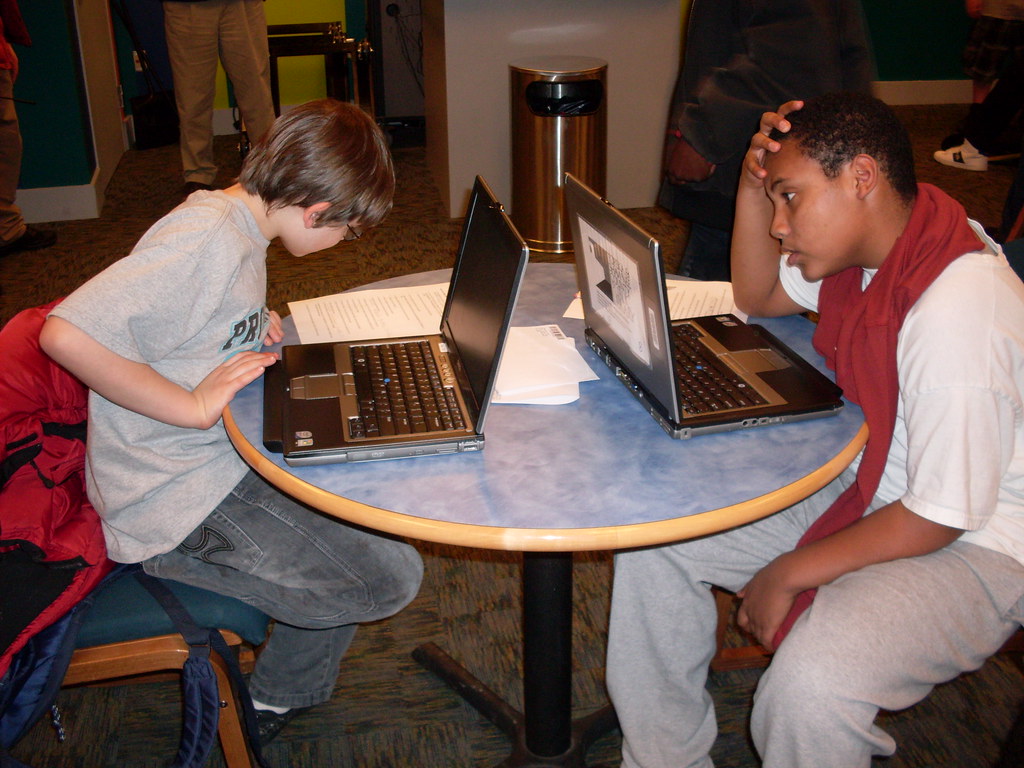You’ve booked your flight, packed your bags, and checked in online. You’re ready to go, right? Well, not so fast. There’s one more thing you need to get on the plane: your boarding pass. But what does it really mean, and how can you make sure you get the best one possible? Here’s everything you need to know about boarding passes, from what they say to how they affect your travel experience.
What is a boarding pass?
A boarding pass is a document that confirms your identity and your seat assignment on a flight. It also gives you access to the security checkpoint and the boarding gate. You can get your boarding pass in different ways, such as printing it at home, downloading it on your phone, or getting it at the airport. Some airlines also offer mobile boarding passes that you can scan with your phone at the gate.
What does a boarding pass say?
A boarding pass contains a lot of information, some of which may seem confusing or irrelevant. Here are some of the most common things you’ll find on your boarding pass, and what they mean:
Name: This is your full name, as it appears on your passport or ID. Make sure it matches exactly, or you may have trouble boarding.
Flight number: This is the number that identifies your flight. You can use it to check the status of your flight, or to find your gate.
Date and time: This is the date and time of your departure, in local time. Be aware of any time zone changes, and don’t miss your flight!
Seat number: This is the number that tells you where you’ll be sitting on the plane. It usually consists of a letter and a number, such as 12A or 23F. The letter indicates the position of the seat in the row, from A to F, and the number indicates the row number. Some airlines also use different seat classes, such as economy, premium economy, business, or first class.
Boarding group: This is the number or letter that tells you when you’ll be boarding the plane. The lower the number or the earlier the letter, the sooner you’ll board. Boarding groups are usually assigned based on your seat class, your frequent flyer status, or your check-in time. Some airlines also offer priority boarding for a fee, or for certain passengers, such as families with young children, people with disabilities, or military personnel.
Barcode: This is the code that contains all the information on your boarding pass. It can be scanned by the airport staff or the gate agent to verify your identity and your seat assignment. It can also be used to check your luggage, or to access certain airport services, such as lounges or duty-free shops.
Other information: Depending on the airline and the destination, your boarding pass may also include other information, such as your passport number, your visa requirements, your baggage allowance, or your flight duration.

How does a boarding pass affect your travel experience?
A boarding pass may seem like a simple piece of paper, but it can have a big impact on your travel experience. Here are some of the ways a boarding pass can affect your trip:
Security: A boarding pass is required to enter the security checkpoint, where you’ll have to show it along with your passport or ID. Make sure you have it ready, and don’t lose it, or you may have to go back to the check-in counter and get a new one. Some airports also have automated gates that scan your boarding pass and let you through, which can save you some time and hassle.
Boarding: A boarding pass is required to board the plane, where you’ll have to show it to the gate agent or scan it at the gate. Your boarding group determines when you’ll board, which can affect how much space you’ll have for your carry-on luggage, or how comfortable you’ll be on the plane. The earlier you board, the more likely you’ll find a spot for your bag in the overhead bin, and the more time you’ll have to settle in your seat. The later you board, the more likely you’ll have to check your bag at the gate, or squeeze into a crowded plane.
Seat: A boarding pass confirms your seat assignment, which can affect how comfortable you’ll be on the plane. Your seat number tells you where you’ll be sitting, and what kind of view, legroom, or amenities you’ll have. Some seats are better than others, depending on your preferences and needs. For example, some people prefer window seats for the view and the privacy, while others prefer aisle seats for the easy access and the extra space. Some people like exit row seats for the extra legroom, while others avoid them for the extra responsibility and the lack of recline. Some people like bulkhead seats for the extra space, while others hate them for the lack of storage and the proximity to the lavatory. Some people like front seats for the quick exit, while others like back seats for the quietness and the service. Some people don’t care where they sit, as long as they have a seat.
Upgrade: A boarding pass can also give you a chance to upgrade your seat, if you’re lucky or willing to pay. Some airlines offer last-minute upgrades at the gate, for a fee or for free, depending on the availability and the demand. Some airlines also allow you to bid for an upgrade online, before your flight, or to use your frequent flyer miles or points to get a better seat. If you’re interested in upgrading your seat, check with your airline or the gate agent, and be ready to act fast, as the opportunities are limited and competitive.

How to get the best boarding pass possible?
A boarding pass can make or break your travel experience, so it’s worth trying to get the best one possible. Here are some tips on how to get the best boarding pass for your flight:
Check in online: One of the easiest ways to get a good boarding pass is to check in online, as soon as possible. Most airlines allow you to check in online 24 hours before your flight, and some even earlier. By checking in online, you can choose your seat, print your boarding pass, or download it on your phone. You can also avoid the lines and the hassle at the airport, and go straight to the security checkpoint or the gate. Some airlines also offer better boarding groups or seats for online check-in, or charge extra fees for airport check-in, so it’s worth doing it online.
Choose your seat wisely: Another way to get a good boarding pass is to choose your seat wisely, based on your preferences and needs. You can use online tools, such as SeatGuru or SeatMaestro, to check the seat map of your plane, and see the pros and cons of each seat. You can also read reviews from other travelers, and see what they liked or disliked about their seats. You can also use online tools, such as ExpertFlyer or SeatAlerts, to check the availability and the price of seats, and to get alerts when a better seat becomes available. You can also ask the gate agent or the flight attendant, politely and discreetly, if there are any seat changes or upgrades available, and you may get lucky.
Be flexible and friendly: Sometimes, getting a good boarding pass is a matter of luck, or of being flexible and friendly. You may encounter unexpected situations, such as overbooking, delays, cancellations, or operational changes, that may affect your boarding pass or your seat assignment. In these cases, you may have to be flexible and adaptable, and accept the changes or the alternatives that are offered to you. You may also have to be friendly and courteous, and treat the airport staff and the gate agents with respect and kindness. They are the ones who can help you or hinder you, and they may be more willing to assist you or accommodate you if you are nice to them. You may also have to be friendly and courteous to your fellow passengers, and be open to swapping seats or helping out if needed. You never know, you may end up with a better seat or a new friend.
There you have it. A boarding pass is more than just a piece of paper, it’s a key to your travel experience. By knowing what it means and how to get the best one, you can make your trip more enjoyable and less stressful. Happy travels!
Related posts:
So THAT’S What All Those Codes On Your Boarding Pass Mean
Southwest Boarding Groups Explained: From A-List to Group C! [2023]
So THAT’S What All Those Codes On Your Boarding Pass Mean





